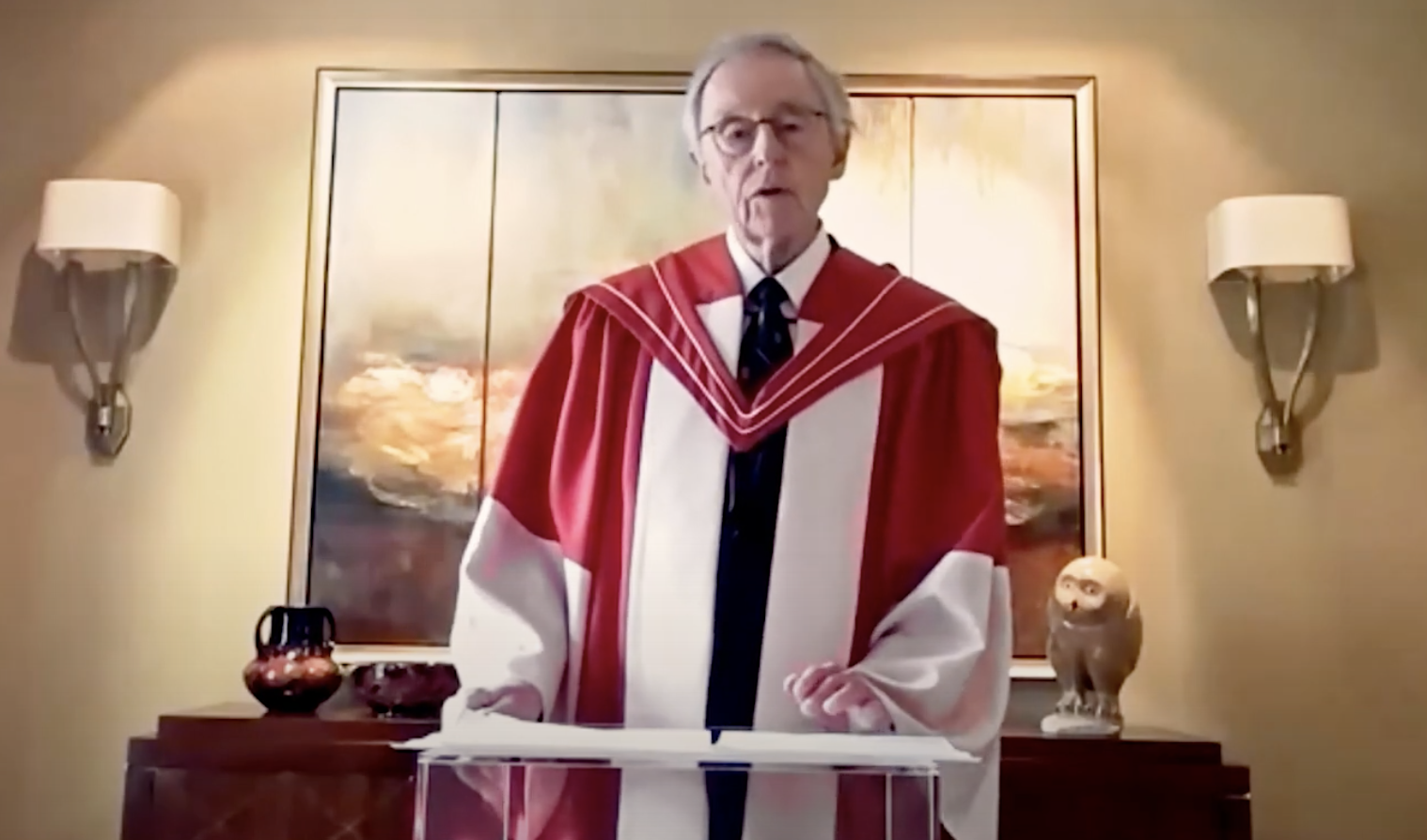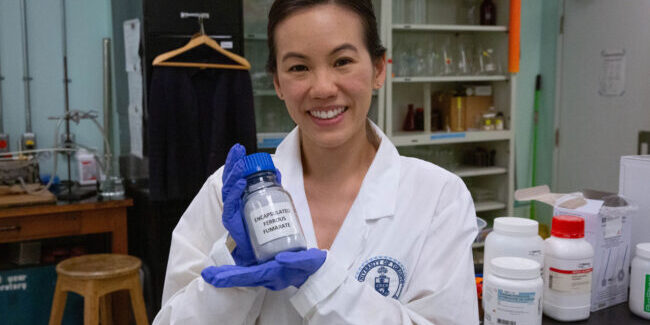An engineer who became president, chair and CEO of one of Canada’s largest industrial companies, David Colcleugh (ChemE 5T9, MASc 6T0, PhD 6T2) has spent much of his career advocating corporate responsibility, sustainable growth and the value of leadership education.
Since his retirement from DuPont Canada almost 20 years ago, Colcleugh has drawn on his professional expertise to teach management skills to the next generation of entrepreneurs, executives and engineers, including U of T students.
Today, for his “outstanding service to the university through his transformative and pioneering contributions to leadership education in engineering,” Colcleugh received a Doctor of Laws, honoris causa, from the University of Toronto – his alma mater.
Recalling his early days at DuPont Canada in the 1960s, Colcleugh, who is 84, says he initially failed to understand the importance of leadership to his job as a research engineer. “When I graduated, I thought my career success would be the result of my skill in solving problems for my employer,” he said in an interview with U of T’s Faculty of Applied Science & Engineering. “It took me a while to learn my success would be the result of my ability to influence people to change things for the better.”
As he climbed the ranks at DuPont, Colcleugh realized that the whole company would benefit if every employee could positively influence others. To achieve a high-performing organization, everyone, “from the executive suite to the sales office to the plant floor” should learn to become a leader, he says.
At the same time, he believed deeply in the potential for engineers to have a positive impact in their communities, as well as on their employers. He became a leading voice behind Responsible Care, a framework developed by DuPont, Dow and other industrial companies to take action on environmental and safety concerns.
The changes at his own company arising from adopting Responsible Care were significant. While he was president and CEO, from 1997 to 2003, DuPont Canada saw injuries drop by half and greenhouse gas emissions decline 85 per cent, even as the company continued to make gains in sales and profitability.
After he retired, Colcleugh drew on his four decades of experiences at DuPont to write a book about business management titled Everyone a Leader: A Guide to Leading High-Performance Organizations for Engineers and Scientists (2013). In the book, he identifies traits that he says most employers now expect in their workers. These include a desire to continuously expand and upgrade skills; a willingness to develop emotionally, socially and physically; self-motivation; and leadership ability. Leaders, he says, are the self-starters who look for challenges beyond the current ones. “They are the ones who raise their hand at meetings and ask the best questions…”
In his speech to the Class of 2021, Colcleugh echoed these ideas, advising graduates not to wait for change to happen, but to be agents of change themselves.
“Any success I’ve had in my career can be captured by five words: change everything all the time,” he said. He advised graduates to think of positive change as something they design that requires a high level of creative thinking and a desire to learn new skills.
Colcleugh’s leadership philosophy has made a strong impact at U of T, where he earned his bachelor of applied science in 1959, a master of science in 1960 and PhD in 1962. He has served as an adviser to the Troost Institute for Leadership Education in Engineering (iLead) at the Faculty of Applied Science & Engineering since its inception in 2010 and has lectured at the Rotman School of Management. A winner of U of T’s Alumni Engineering Medal, he also founded the Colcleugh Family Award, which is given annually to a student entering the first year of chemical engineering.




